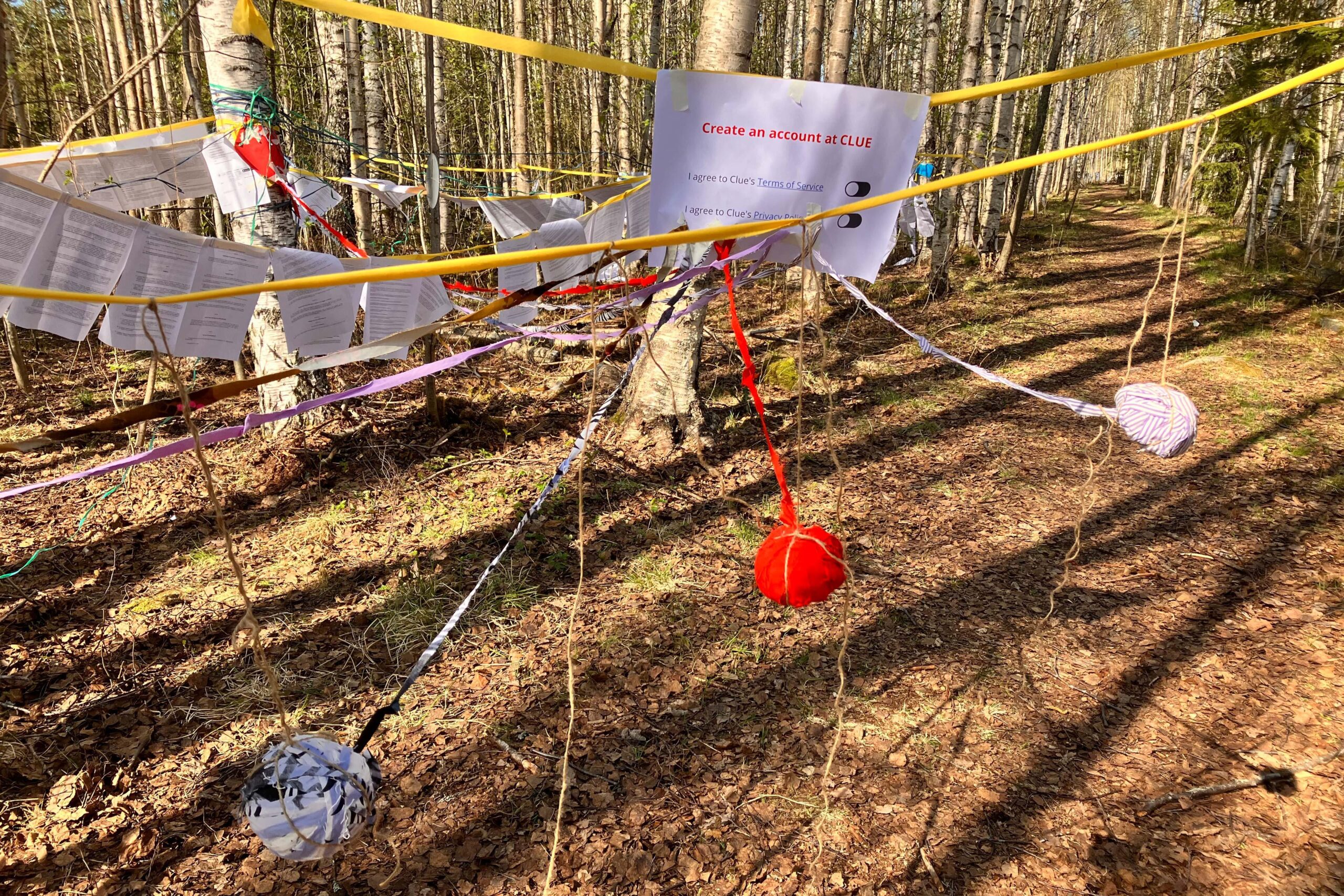

SSDS | DOES TERMS OF SERVICE CARE? | Seda Özçetin
2024-05-23 - 2024-05-26
2024-05-23 12:00 – 18:00
2024-05-24 12:00 – 18:00
2024-05-25 12:00 – 18:00
2024-05-26 12:00 – 18:00
An installation that traces care in a ToSsphere – a Terms of Service ecosystem. Part of SSDS – Southern Sweden Design Days.
Once upon a time, it was a thing to choose with care what one would own. It used to be an investment of one’s time and money. In time, things and how we relate to them have changed with the introduction of smart phones and apps. Now, we have ongoing relations with these things that often start with a simple lie: ‘I have read and agree on the Terms of Service’. In our defense, Terms of Service (ToS) is not a good read; too long, complex, and boring. It is not that we don’t care but we just can’t. It is more like it is ToS that doesn’t care if we read it or not!
This installation looks at ToS and reads it like a map in an attempt to trace care asking ‘Who does the ToS care about and for?’. The installation showcases a video of a spatial mapping exploration done in an urban forest in Umeå. Taking a femtech application’s Terms of Service ecosystem, ToSsphere, as a site for inquiry, the installation looks at who is present, who is absent, who is cared for and who is not. These questions and revelations printed on ToS documents form the backdrop of the video. Shot in juxtaposition to nature, the video highlights how natural resources essential in sustaining digital things, are absent in ToSspheres. As we move fast towards an every day we can’t imagine without generative AI despite its impact on the planet, the installation welcomes a pause to think with care our digital footprint.
The installation carried out as an artistic research practice in design at Umeå Institute of Design and DCODE Network, opens pathways for design to engage with democratic data governance for designing new eco-social contacts that care for our more-than-human planet.
This work is supported by the project DCODE. This project has received funding from the European Union’s Horizon 2020 research and innovation programme under the Marie Skłodowska-Curie grant agreement No 955990.